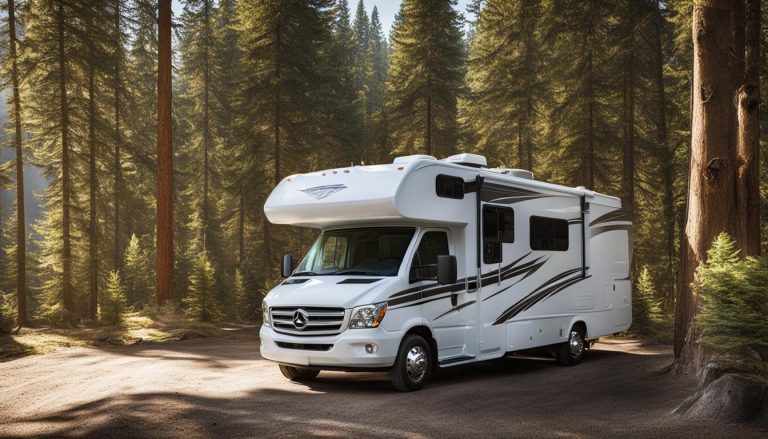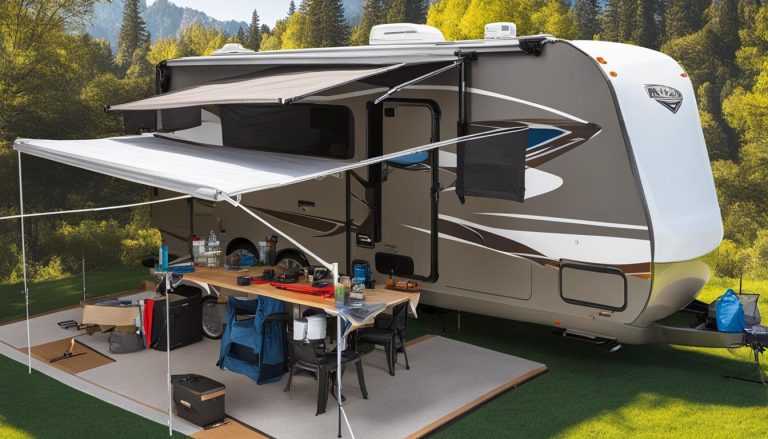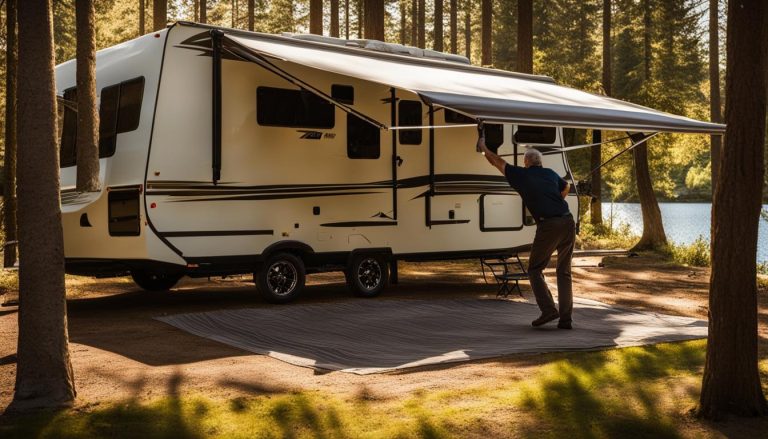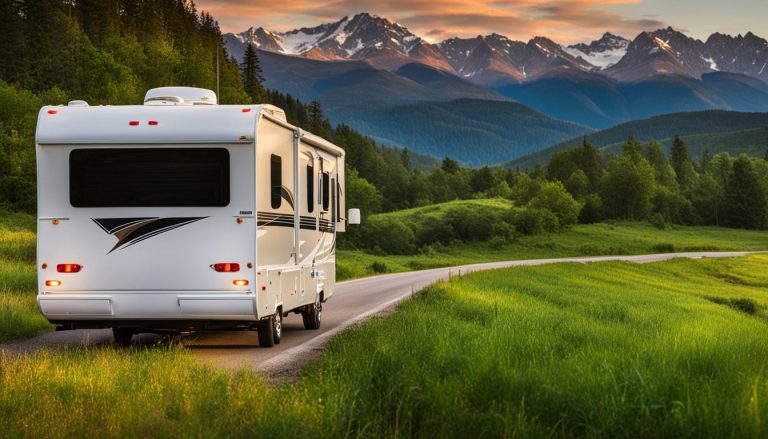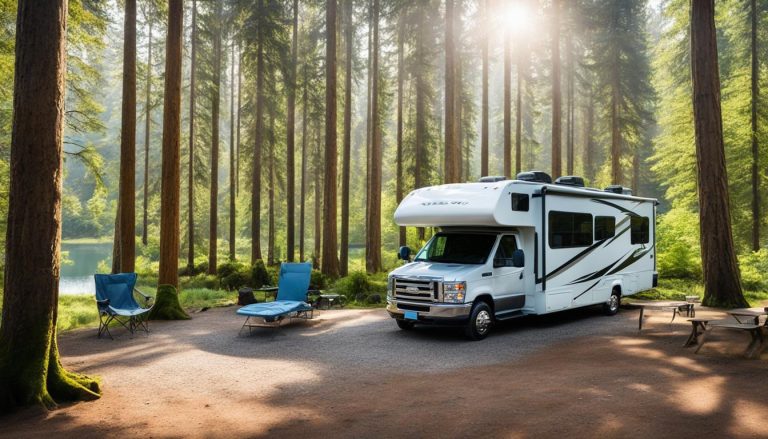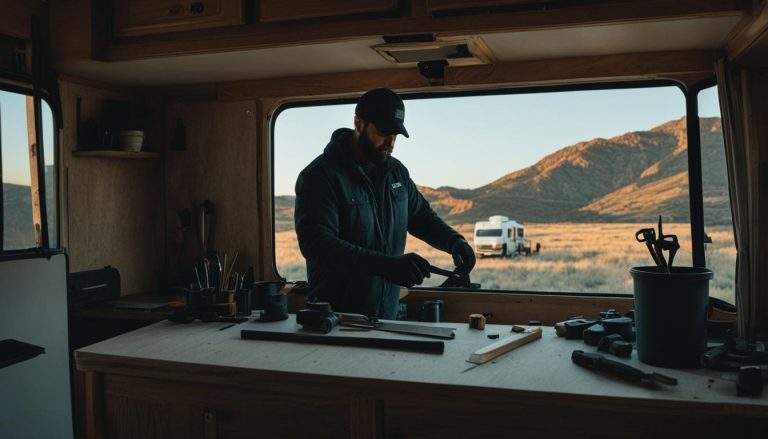Connect Your RV to a Home Easily & Safely
gorvlifestyle.com and its partners may earn a commission if you purchase a product through one of our links
Are you looking to hook up your RV to a house? Whether you’re planning a short trip or need a temporary power source, it’s essential to know how to connect your RV to a home’s electrical system. While living in an RV outside a home for an extended period is not recommended, occasional use can be convenient and safe.
To hook up your RV to a home, you’ll need a 30/50 Amp hookup. There are two options to achieve this: you can either install a dedicated RV hookup at your home or use an outdoor, all-weather extension cord and adapter to connect your RV to a standard 3-prong household plug.
Connecting your RV to a home’s electrical system requires following the proper steps to ensure your safety and the successful operation of your RV. By turning off breakers and ensuring all appliances are off during the hookup process, you can prevent electrical accidents and damage to your equipment.
Key Takeaways
- Hooking up your RV to a home’s electrical system requires a 30/50 Amp hookup.
- You can use an outdoor, all-weather extension cord and adapter to connect your RV to a standard 3-prong household plug.
- Ensure all electrical appliances are turned off during the hookup process for safety.
- Consider power limitations when using a home’s electrical system, as a standard outlet typically provides 15/20 Amps.
- Be mindful of power consumption and avoid overloading the electrical system by using one appliance at a time.
Steps to Hooking up Your RV to a Home
To hook up your RV to a home’s electrical system, follow these steps:
- Turn off all electrical appliances in your RV and home.
- Plug the extension cord into your RV’s electrical hookups using an adapter, if needed.
- Reset the breakers in your home.
- If everything is working properly, you’re ready to use the power from your home. If not, check your RV’s manual or contact the manufacturer for assistance.
Hooking up your RV to a home allows you to access a reliable and convenient power source. It ensures you have the necessary power to run your appliances and charge your batteries, making your RV experience more comfortable and enjoyable.
Before you begin the hookup process, it’s important to turn off all electrical appliances in both your RV and home. This step helps prevent any electrical issues or overload when connecting the power sources.
Next, you’ll need to plug the extension cord into your RV’s electrical hookups. If your RV has a different plug than the household outlet, use an adapter to ensure a proper connection. A secure and tight connection is crucial to prevent any power interruptions or safety hazards.
After plugging in the cord, reset the breakers in your home. This step ensures that the power is distributed correctly and allows your RV to receive the necessary power supply.
Once you’ve completed these steps, test the power connection to ensure everything is working as expected. Check if your RV’s electrical system is functioning correctly. If you encounter any issues, consult your RV’s manual or reach out to the manufacturer for assistance.
By following these steps, you can easily and safely hook up your RV to a home’s electrical system, providing a reliable power source for your RV adventures.
Having a proper RV power hookup at your residence offers numerous benefits. It allows you to enjoy the comforts of home while traveling and provides a stable power source for your RV appliances and accessories.
Considerations for Power Usage
When hooking up your RV to a home’s electrical system, it’s important to understand the power limitations. A standard household outlet typically provides 15/20 Amps, while an RV requires at least a 30/50 Amp hookup. This means that you may not be able to run all appliances or use electricity 24/7 when connected to a home’s outlet. It’s essential to be mindful of power consumption and only use one appliance at a time. Appliances like air conditioning, heaters, microwaves, toasters, and hairdryers are electric hogs and should be used with caution. It’s advisable to consider using the appliances in the home you’re parked in to conserve energy and prevent overloading the electrical system.
Power Limitations
When connecting your RV to a home’s electrical system, it’s important to be aware of the power limitations. While a standard household outlet provides 15/20 Amps, an RV typically requires a 30/50 Amp hookup. This means that you may not be able to power all of your appliances or use electricity continuously when connected to a home’s outlet. It’s essential to check the electrical specifications of your RV and the power capacity of the home’s outlet before hooking up.
Power Consumption Tips
To optimize power usage when hooked up to a home’s electrical system, follow these tips:
- Use one appliance at a time to avoid overloading the electrical system.
- Consider using the appliances in the home you’re parked in to conserve energy.
- Avoid using power-intensive appliances such as air conditioning, heaters, microwaves, toasters, and hairdryers simultaneously.
- Turn off lights and appliances when not in use to reduce power consumption.
- Regularly monitor your RV’s power usage to prevent exceeding the limits of the home’s electrical system.
| Appliance | Power Consumption (Amps) |
|---|---|
| Air Conditioner | 12-16 |
| Heater | 8-12 |
| Microwave | 8-13 |
| Toaster | 8-12 |
| Hairdryer | 10-15 |
As shown in the table above, power-intensive appliances like air conditioners, heaters, microwaves, toasters, and hairdryers can consume a significant amount of power. To prevent overloading the electrical system, use these appliances sparingly and avoid using them simultaneously.
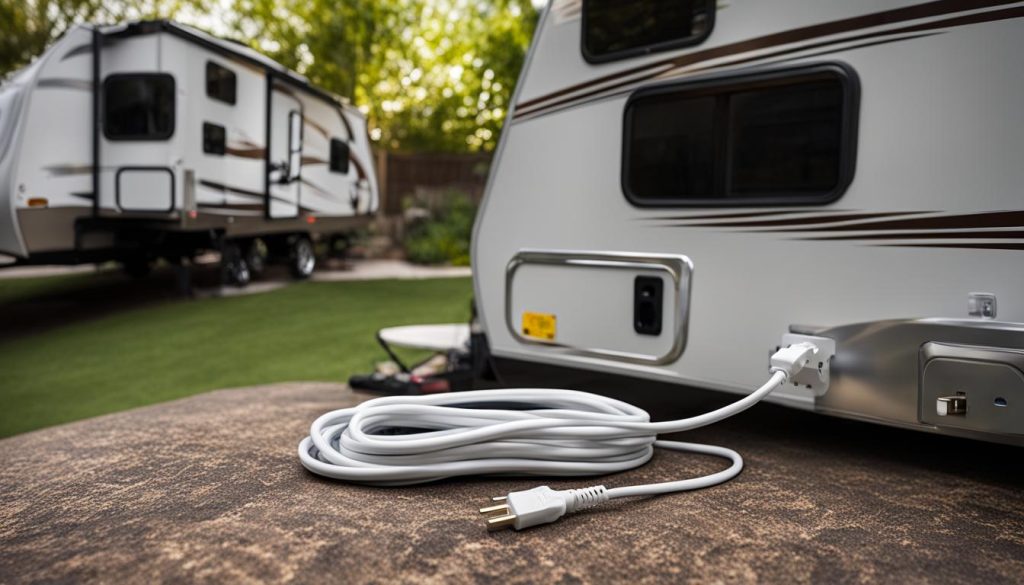
Plugging Your RV into Household Power
When it comes to plugging your RV into household power, there are a few important factors to consider. By following these guidelines, you can ensure a safe and efficient connection to your residential electrical system.
1. Choose the Correct Adapter
Before plugging in your RV, make sure you have the appropriate adapter to fit the household outlet you’ll be using. Most RVs require either a 30 or 50 Amp plug, which won’t fit into a standard 110 outlet without an adapter. It’s important to use the correct adapter to avoid any electrical issues or potential damage to your RV’s electrical system.
2. Use a Suitable Extension Cord
Using a suitable extension cord is crucial when plugging your RV into household power. Be sure to use a cord that is rated for the amps you’ll be drawing. It’s recommended to use a thick cord that can handle the voltage to prevent any electrical hazards. Investing in a high-quality extension cord will provide a reliable power source for your RV and ensure safe operation.
3. Consider a Licensed Electrician for a Dedicated RV Plug
If you frequently plug your RV into household power, it might be beneficial to have a dedicated RV plug installed at your home. A licensed electrician can install a 30 or 50 Amp RV plug that will provide a safe and reliable power source specifically designed for your RV. This option eliminates the need for adapters and extension cords, streamlining the connection process and providing peace of mind.
| Benefits of a Dedicated RV Plug | Considerations |
|---|---|
| Convenient and hassle-free connection | Requires professional installation |
| Eliminates the need for adapters and extension cords | Potential electrical upgrades may be needed |
| Provides a dedicated power source for your RV | Ensures a safer and more efficient connection |
By following these tips, you can ensure a smooth and reliable connection when plugging your RV into household power. Whether you choose to use an adapter and extension cord or opt for a dedicated RV plug, it’s important to prioritize safety and efficiency to enjoy your RVing experience to the fullest.
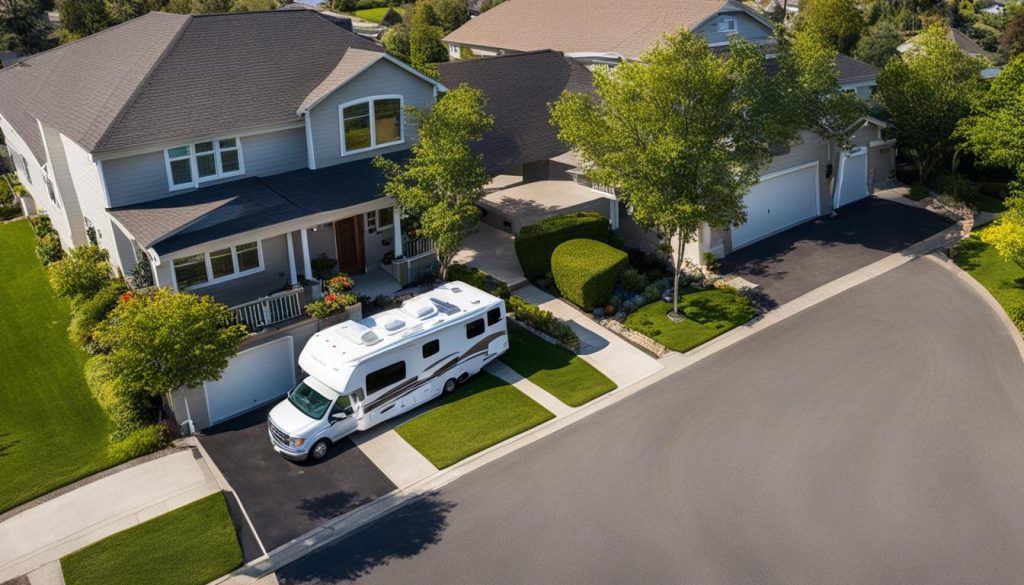
Installing RV Hookups at Home
If you’re looking to have RV hookups at home for water, sewer, and electrical connections, there are a few important steps you should follow. First, it’s a good idea to build a gravel or concrete parking pad to ensure a level surface for your RV. This will help prevent settling and ensure stability during your stays.
To connect your RV to a water source, you’ll need to dig a trench and install CPVC pipe below the frost line to prevent freezing. This will ensure a reliable water hookup year-round. For the electrical hookup, we recommend hiring a licensed electrician to run the appropriate size electrical line from your breaker box to the RV. This will ensure safe and reliable power to your RV while preventing any electrical hazards.
When it comes to waste disposal, you have a few options. You can choose to hook up to an existing public sewer system if available, connect to your private septic system, or install a sewer tank specifically for your RV. Make sure to check local regulations and obtain any necessary permits before installing permanent RV hookups at home. This will help ensure compliance and avoid any potential issues down the line.
By taking the necessary steps to install RV hookups at home, you’ll be able to enjoy the comforts of your RV while having the convenience of water, sewer, and electrical connections right at your doorstep. It’s a great way to make your home the perfect basecamp for all your RV adventures.
FAQ
How do I hook up my RV to a home’s electrical system?
To hook up your RV to a home, you’ll need a 30/50 Amp hookup. You can either install this hookup at your home or use an outdoor, all-weather extension cord and adapter to connect to a standard 3-prong household plug. Turn off all electrical appliances in your RV and home, plug the extension cord into your RV’s electrical hookups, reset the breakers in your home, and ensure everything is working properly.
Can I hook up my RV to a regular household outlet?
A standard household outlet typically provides 15/20 Amps, while an RV requires at least a 30/50 Amp hookup. This means that you may not be able to run all appliances or use electricity 24/7 when connected to a home’s outlet. It’s important to be mindful of power consumption and only use one appliance at a time.
What do I need to consider when plugging my RV into household power?
When plugging your RV into household power, ensure you have the correct adapter to fit the household outlet and use a suitable extension cord rated for the amps you’ll be drawing. If you want a dedicated RV plug at your home, it’s best to hire a licensed electrician to install a 30 or 50 Amp RV plug for a safe and reliable power source.
How can I install RV hookups at home?
If you plan to have RV hookups at home for water, sewer, and electrical connections, consider building a level parking pad for your RV and running water and electrical hookups. Dig a trench for the water hookup and install CPVC pipe below the frost line to prevent freezing. Hire a licensed electrician to run the appropriate size electrical line from your breaker box to the RV. Check local regulations and obtain any necessary permits before installing permanent RV hookups at home.

